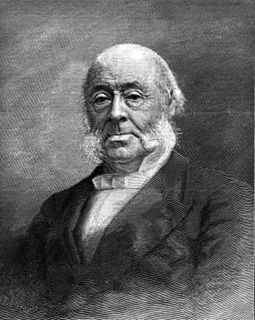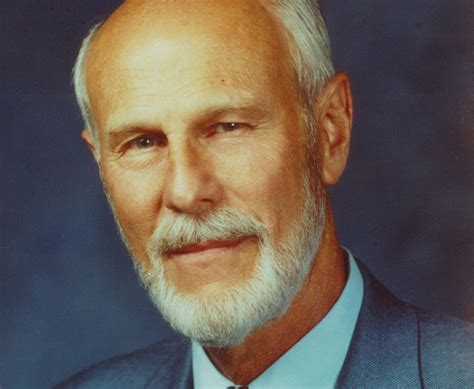A Quote by Guglielmo Marconi
Religious faith to W. H. Bragg was the willingness to stake his all on the hypothesis that Christ was right, and test it by a lifetime's experiment in charity.
Quote Topics
Related Quotes
[Coining phrase "null hypothesis"] In relation to any experiment we may speak of this hypothesis as the "null hypothesis," and it should be noted that the null hypothesis is never proved or established, but is possibly disproved, in the course of experimentation. Every experiment may be said to exist only in order to give the facts a chance of disproving the null hypothesis.
However the machine would permit us to test the hypothesis for any special value of n. We could carry out such tests for a sequence of consecutive values n=2,3,.. up to, say, n=100. If the result of at least one test were negative, the hypothesis would prove to be false; otherwise our confidence in the hypothesis would increase, and we should feel encouraged to attempt establishing the hypothesis, instead of trying to construct a counterexample.
The TV scientist who mutters sadly, "The experiment is a failure; we have failed to achieve what we had hoped for," is suffering mainly from a bad script writer. An experiment is never a failure solely because it fails to achieve predicted results. An experiment is a failure only when it also fails adequately to test the hypothesis in question, when the data it produces don't prove anything one way or another.
If you feel sincerely sorry on account of your sins, and believe that Christ is able and willing to forgive you, the work is done. You may trust with all the confidence of a child who confesses his fault, and casts himself into his father's arms. This is faith; a simple trust in the power and willingness of the Father to forgive, for the sake of what Christ the Son has done.
Nothing you do makes much of a difference if you do not have charity. You can speak with tongues, have the gift of prophecy, understand all mysteries, and possess all knowledge; even if you have the faith to move mountains, without charity it won't profit you at all.... Without charity-or the pure love of Christ-whatever else we accomplish matters little. With it, all else becomes vibrant and alive.
Every time man makes a new experiment he always learns more. He cannot learn less. He may learn that what he thought was true was not true. By the elimination of a false premise, his basic capital wealth which in his given lifetime is disembarrassed of further preoccupation with considerations of how to employ a worthless time-consuming hypothesis. Freeing his time for its more effective exploratory investment is to give man increased wealth.
What is the fundamental hypothesis of science, the fundamental philosophy? We stated it in the first chapter: the sole test of the validity of any idea is experiment. ... If we are told that the same experiment will always produce the same result, that is all very well, but if when we try it, it does not, then it does not. We just have to take what we see, and then formulate all the rest of our ideas in terms of our actual experience.
Hope is critical to both faith and charity. When disobedience, disappointment, and procrastination erode faith, hope is there to uphold our faith. When frustration and impatience challenge charity, hope braces our resolve and urges us to care for our fellowmen even without expectation of reward. The brighter our hope, the greater our faith. The stronger our hope, the purer our charity.
A nominal Christian often discovers in suffering that his faith has been in his church, denomination, or family tradition, but not Christ. As he faces evil and suffering, he may lose his faith. But that’s actually a good thing. I have sympathy for people who lose their faith, but any faith lost in suffering wasn’t a faith worth keeping.
They [the disciples] were testifying to the resurrection, a question of fact, not merely of faith. They were convinced of an event. And their willingness to die for attesting to that event is far more convincing that the willingness of others to die for a mere belief or because of loyalty to a religion or religious leader.




































